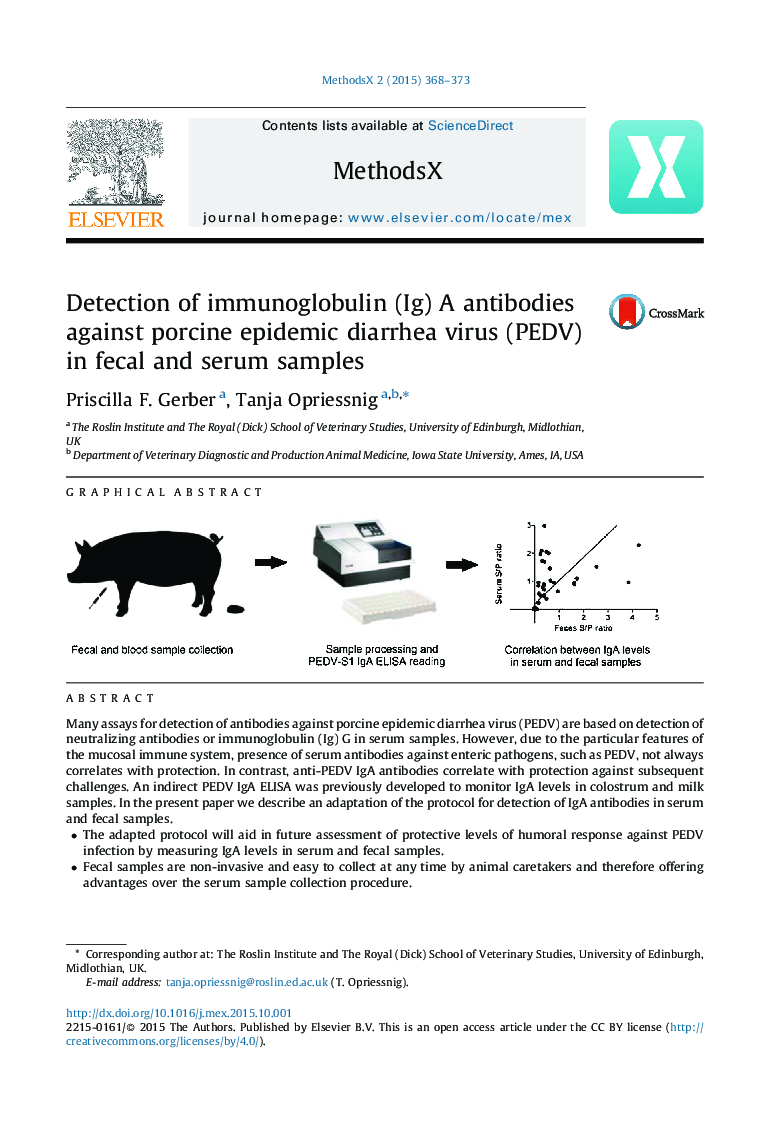| Article ID | Journal | Published Year | Pages | File Type |
|---|---|---|---|---|
| 2058793 | MethodsX | 2015 | 6 Pages |
Many assays for detection of antibodies against porcine epidemic diarrhea virus (PEDV) are based on detection of neutralizing antibodies or immunoglobulin (Ig) G in serum samples. However, due to the particular features of the mucosal immune system, presence of serum antibodies against enteric pathogens, such as PEDV, not always correlates with protection. In contrast, anti-PEDV IgA antibodies correlate with protection against subsequent challenges. An indirect PEDV IgA ELISA was previously developed to monitor IgA levels in colostrum and milk samples. In the present paper we describe an adaptation of the protocol for detection of IgA antibodies in serum and fecal samples.•The adapted protocol will aid in future assessment of protective levels of humoral response against PEDV infection by measuring IgA levels in serum and fecal samples.•Fecal samples are non-invasive and easy to collect at any time by animal caretakers and therefore offering advantages over the serum sample collection procedure.•A strong positive correlation between the anti-PEDV levels in fecal and serum samples was identified; however, detection of IgA antibodies was often more successful in serum than in paired fecal samples due to overall lower sample-to-positive (S/P) ratios for the latter sample type.
Graphical abstractFigure optionsDownload full-size imageDownload as PowerPoint slide
